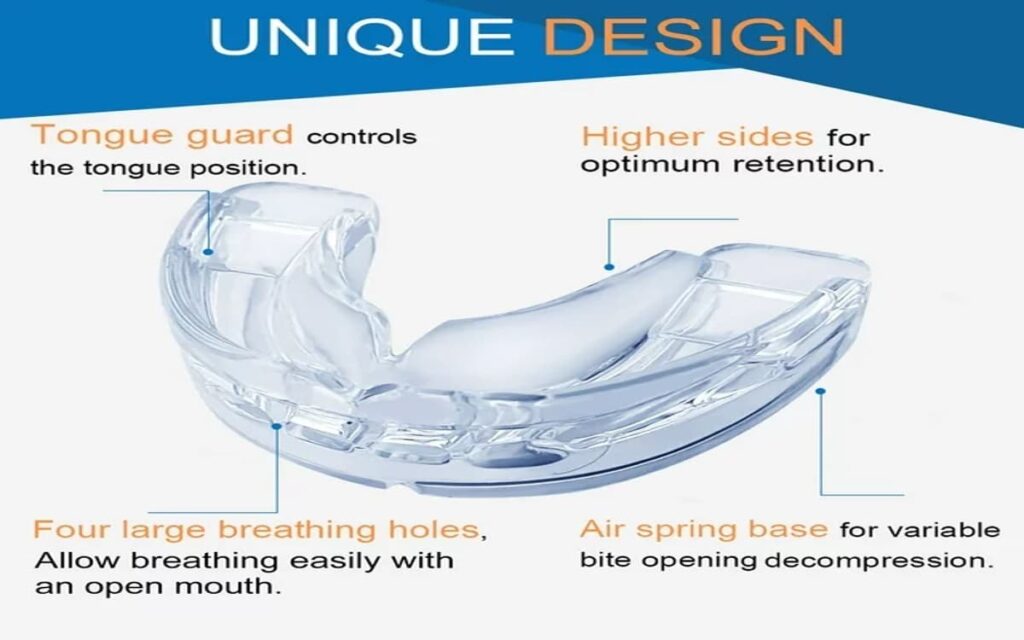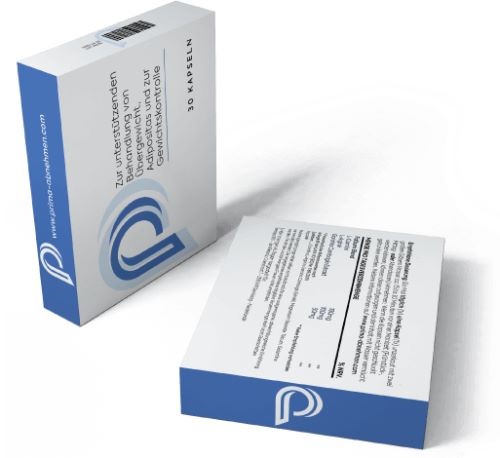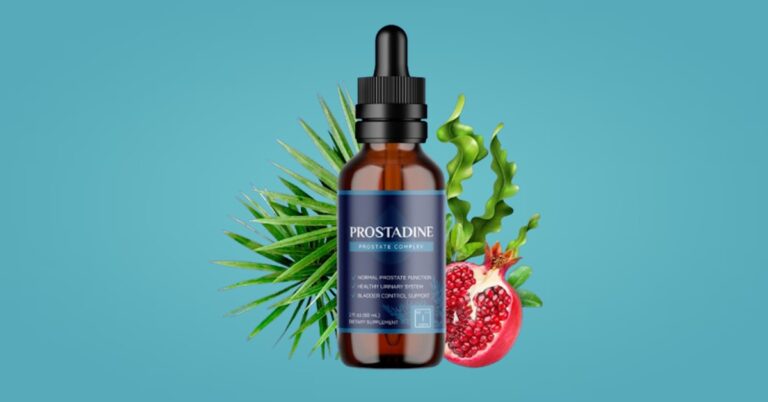The Best Fluffy Pancakes recipe you will fall in love with. Full of tips and tricks to help you make the best pancakes.

Are sleepless nights due to incessant snoring taking a toll on your health and relationships? If so, you’re not alone. Snoring is a common issue that affects millions around the world. Fortunately, there’s a solution that has helped countless individuals reclaim their peaceful sleep with the use of a Best Rated Anti Snoring Mouthpiece.
In this comprehensive guide, we’ll delve into the world of anti-snoring mouthpieces, providing you with a deep understanding of what they are, how they work, the various types available, and most importantly,
how to choose the best one for you. Say goodbye to sleepless nights and hello to restful, rejuvenating sleep.
What Causes Snoring?
Snoring is a common sleep-related issue that occurs when the flow of air through the mouth and nose is partially blocked during sleep. This obstruction leads to vibrations in the throat tissues, resulting in the characteristic sound of snoring. Several factors contribute to the occurrence of snoring:
- Relaxed Throat Muscles: During sleep, the muscles in the throat, tongue, and soft palate relax. This relaxation can cause these tissues to collapse and partially obstruct the airway.
- Nasal Congestion: Conditions like allergies, sinus infections, or a deviated septum can lead to nasal congestion. When the nasal passages are narrowed, it increases the likelihood of snoring.
- Obesity: Excess body weight, particularly around the neck, can put pressure on the throat tissues, narrowing the airway. This makes it more likely for snoring to occur.
- Sleep Position: Sleeping on your back can contribute to snoring. In this position, the tongue and soft palate are more likely to collapse to the back of the throat.
- Alcohol and Sedative Use: Alcohol and certain sedatives relax the throat muscles, which can increase the likelihood of snoring.
- Age: As individuals age, muscle tone naturally decreases. This includes the muscles in the throat, which may be more prone to collapse and cause snoring.
- Anatomy of the Mouth and Throat: Certain structural factors, such as enlarged tonsils, a long uvula, or a low, thick soft palate, can contribute to snoring.
- Sleep Apnea: This is a more serious sleep disorder characterized by pauses in breathing during sleep. Snoring is a common symptom of sleep apnea, but not all snorers have sleep apnea.
- Smoking: Smoking irritates the membranes of the throat and nose, leading to inflammation and congestion. This can contribute to snoring.
- Genetics: There may be a genetic predisposition to snoring. If snoring runs in your family, you may be more likely to experience it.
- Consumption of Dairy Products: Some individuals may experience increased mucus production after consuming dairy products, which can lead to snoring.
It’s important to note that occasional snoring is normal and often not a cause for concern.
However, if snoring is loud, chronic, or accompanied by other symptoms like daytime fatigue or pauses in breathing, it may be indicative of a more serious sleep disorder and should be evaluated by a healthcare professional.
Editor Recommendation: How To Quickly Heal Bone-Bone Joint Pain
What is an Anti Snoring Mouthpiece
An anti-snoring mouthpiece, also known as a snoring mouthguard or oral appliance, is a specially designed device that aims to alleviate snoring by repositioning the jaw, tongue, and soft palate to allow for a clear and unobstructed airway during sleep.
These devices are typically made of medical-grade materials, ensuring safety and comfort for the user. They are custom-fitted to each individual to optimize effectiveness.

Key Features of an Anti-Snoring Mouthpiece:
- Adjustability: Many mouthpieces are adjustable to suit the unique needs and comfort preferences of the user.
- Material: They are usually made of BPA-free, hypoallergenic materials to prevent any adverse reactions.
- Ease of Cleaning: The best anti-snoring mouthpieces are easy to clean, ensuring proper hygiene.
- Durability: A good mouthpiece should be sturdy and long-lasting.
5 Top Rated Anti-Snoring Mouthpieces – Top Picks in 2023
If you’re in the market for an anti-snoring mouthpiece, it’s important to choose a reputable and effective product. Here are five top-rated options that have garnered praise from users:
- SnoreRx
- Key Features:
- Adjustable in small increments for a personalized fit.
- Made from medical-grade, hypoallergenic materials.
- Allows for natural jaw movement while preventing snoring.
- Key Features:
- ZQuiet
- Key Features:
- Ready-to-use, no need for adjustments or molding.
- The two-piece design promotes natural jaw movement and comfort.
- Clinically proven to regulate airflow and reduce snoring.
- Key Features:
- VitalSleep
- Key Features:
- Customizable through the boil-and-bite fitting process.
- Made from BPA-free, latex-free, and FDA-approved materials.
- Comes in two sizes for optimal fit.
- Key Features:
- PureSleep
- Key Features:
- Custom-molded for a precise fit.
- Provides adjustment options for different levels of snoring.
- Approved by the FDA for snoring relief.
- Key Features:
- Good Morning Snore Solution
- Key Features:
- Tongue stabilizing device (TSD) design.
- Clinically proven and endorsed by healthcare professionals.
- Requires no adjustment or special fitting.
- Key Features:
These top-rated anti snoring mouthpieces have garnered positive reviews for their effectiveness, comfort, and ease of use.
However, it’s important to note that what works best for one person may not work for another.
Factors such as individual anatomy, comfort preferences, and specific snoring patterns should all be taken into consideration when making your choice.
In the next section, we’ll provide tips on how to use anti snoring mouthpieces effectively to maximize their benefits.]
ASLO Read: Best Vitamins for Eye Health That Really Works
Choosing the Right Anti Snoring Mouthpiece
Selecting the perfect anti snoring mouthpiece can significantly improve your sleep quality and overall well-being. To make an informed decision, consider the following crucial factors:
1. Comfort
A comfortable mouthpiece is essential for a restful night’s sleep. It should fit snugly in your mouth without causing any pain or discomfort. Look for mouthpieces with adjustable features or customizable options to ensure a personalized and comfortable fit.
2. Effectiveness
Effectiveness is paramount when it comes to anti snoring devices. Consider the type of snoring you experience. If it’s primarily related to jaw position, a Mandibular Advancement Device (MAD) may be the best choice. If your snoring is tongue-based, a Tongue Stabilizing Device (TSD) might be more effective.
3. Durability
A durable mouthpiece ensures long-term use and value for your investment. Look for products made from high-quality, medical-grade materials that are designed to withstand nightly use without losing their effectiveness.
4. Price
Anti snoring mouthpieces come in a range of prices. While it’s important to stick to your budget, remember that a higher-priced option may offer better features, comfort, and durability. Consider it an investment in your sleep quality and overall health.
5. Customizability
Customizability allows for a tailored fit, which is crucial for the effectiveness and comfort of the mouthpiece. Some products offer adjustable features or a boil-and-bite fitting process, ensuring that the device is molded to the unique shape of your mouth.
6. FDA Approval
Ensure that the mouthpiece you choose is FDA-approved. This certification indicates that the device has met specific safety and effectiveness standards, providing you with peace of mind about its quality and reliability.
7. User Reviews and Recommendations
Reading reviews and seeking recommendations from other users can provide valuable insights into the performance of a particular mouthpiece. Look for testimonials from individuals with similar snoring issues for a more accurate assessment.
8. Return Policy and Warranty
Check the manufacturer’s return policy and warranty information. This ensures that you have recourse if the mouthpiece doesn’t meet your expectations or encounter any issues.
By carefully considering these factors, you’ll be equipped to choose a zquiet anti-snoring mouthpiece that aligns with your specific needs and preferences.
Remember, the right mouthpiece can make a significant difference in your sleep quality and overall well-being.
ALSO Reas: How I cured mu Tinnitus Ear Ringing
How Anti-Snoring Mouthpieces Work
Understanding the mechanics of how anti-snoring mouthpieces operate can provide valuable insight into their effectiveness.
When we sleep, the muscles in our throat and mouth relax. For individuals who snore, these relaxed muscles can partially block the airway, causing vibrations (snoring) as air passes through.
An anti-snoring mouthpiece works by gently shifting the position of the lower jaw forward. This slight adjustment serves two crucial purposes:
- Maintains Airway Patency: By moving the jaw forward, the mouthpiece prevents the collapse of soft tissues at the back of the throat, ensuring a clear passage for air.
- Tightens Tissues: The repositioned jaw tightens the soft palate and tongue muscles, further reducing the likelihood of snoring.
Additionally, some advanced mouthpieces may have features like airway vents or tongue-stabilizing elements to enhance their effectiveness.
In the next section, we’ll explore the different types of anti-snoring mouthpieces available in the market.
Types of Anti-Snoring Mouthpieces and Best Anti-Snoring Devices
Anti-snoring mouthpieces come in various types, each designed to address specific snoring patterns and individual preferences. Understanding the different options will help you make an informed choice.
1. Mandibular Advancement Devices (MADs)
MADs are the most common type of anti-snoring mouthpiece. They work by gently moving the lower jaw (mandible) forward, which in turn tightens the soft tissues and muscles of the upper airway. This prevents the airway from collapsing during sleep.
Key Features:
- Adjustable for personalized fit.
- Typically more comfortable than other types.
- Suitable for individuals with mild to moderate sleep apnea or obstructive sleep apnea.
2. Tongue Stabilizing Devices (TSDs)
TSDs focus on stabilizing the tongue to prevent it from falling backward and obstructing the airway. They do not involve repositioning of the jaw.
Key Features:
- Simple design.
- Easy to use.
- Effective for individuals with tongue-based snoring.
3. Hybrid Devices
These combine features of both MADs and TSDs. They aim to address both jaw and tongue-related snoring issues.
Key Features:
- Versatile in addressing different snoring patterns.
- May be suitable for individuals with a combination of jaw and tongue-related snoring.
4. Tongue Retaining Devices (TRDs)
TRDs hold the tongue in a forward position, preventing it from obstructing the airway. They do not involve adjustments to the jaw.
Key Features:
- Simple design.
- Effective for tongue-based snorers.
- May take some time to get used to.
5. Nasal Dilators
While not strictly mouthpieces, nasal dilators can complement anti-snoring devices. They work by opening the nasal passages, allowing for easier breathing through the nose.
Key Features:
- Non-invasive.
- Suitable for individuals with nasal congestion-related snoring.
6. Custom vs. Over-the-Counter (OTC) Mouthpieces And Mouthguards
Custom-made mouthpieces are crafted to fit an individual’s mouth precisely. They are usually obtained through a dentist or a sleep specialist. OTC mouthpieces are available without a prescription and offer a more affordable option.
Selecting the right type depends on factors like the specific cause of your snoring, comfort preferences, and any pre-existing dental conditions.
In the next section, we’ll guide you through the process of choosing the perfect anti-snoring mouthpiece tailored to your needs.
Difference Between Snoring And Sleep Apnea
While snoring and sleep apnea can often be associated, they are distinct sleep-related conditions:
- Snoring is the noise produced when air flows past relaxed tissues in the throat, causing them to vibrate during sleep. It is typically harmless, but can be disruptive to both the snorer and their sleeping partner.
- Sleep Apnea, on the other hand, is a more serious condition characterized by repeated interruptions in breathing during sleep. These pauses in breathing can last from a few seconds to minutes and may occur multiple times per hour. Sleep apnea can lead to various health issues if left untreated.
Suggested Article: Home Remedies for Tinnitus Buzzing Ear
Benefits of Using Anti-Snoring Mouthpieces
Using an anti-snoring mouthpiece can offer several notable advantages:
- Improved Sleep Quality: By reducing or eliminating snoring, these devices promote uninterrupted, restful sleep.
- Enhanced Daytime Alertness: Better sleep quality sleep position and leads to increased alertness and productivity during waking hours.
- Reduced Health Risks: Addressing snoring may lower the risk of associated health issues like high blood pressure and cardiovascular problems.
- Enhanced Relationships: Quieter nights can lead to improved relationships with sleep partners, as both parties enjoy better sleep quality.
- Non-Invasive Solution: Unlike surgery or other interventions, anti-snoring mouthpieces provide a non-invasive approach to snoring.
Anti-Snoring Mouthpieces Potential Side Effects
While generally safe, some individuals may experience minor side effects when using anti-snoring mouthpieces:
- Excessive Salivation: Some people may produce more saliva initially, but this typically diminishes over time.
- Soreness or Jaw Discomfort: This can occur if the mouthpiece is too tight or the jaw is positioned too far forward. Adjustments may be needed.
- Tooth Shifting or Pain: Rarely, long-term use may cause dental issues. Regular check-ups with a dentist are recommended.
- Temporomandibular Joint (TMJ) Issues: In rare cases, individuals with existing TMJ issues may experience discomfort.
Always consult a healthcare professional if you experience persistent discomfort or side effects.
Health Implications of Snoring
Snoring may seem like a harmless annoyance, but it can have significant implications for your health.
Understanding these potential health risks is crucial for taking proactive steps towards better sleep and overall well-being.
1. Disrupted Sleep Patterns
Frequent snoring disrupts the natural sleep cycle, preventing individuals from reaching deep, restorative stages of sleep.
This leads to daytime drowsiness, reduced alertness, and impaired cognitive function.
2. Daytime Fatigue and Sleepiness
Consistent snoring often results in daytime fatigue and excessive sleepiness. This can impact daily activities, and productivity, and even lead to accidents or errors in judgment.
3. High Blood Pressure
Chronic snoring has been associated with hypertension (high blood pressure). Repeated interruptions in breathing can lead to increased blood pressure levels, potentially contributing to cardiovascular issues over time.
4. Cardiovascular Problems
Severe cases of sleep apnea, a condition often associated with snoring, can lead to more serious cardiovascular problems, including heart disease, irregular heartbeats, and heart attacks.
5. Weight Gain and Obesity
Poor sleep quality due to snoring can disrupt the body’s hormonal balance, leading to an increased appetite and cravings for high-calorie, sugary foods. Over time, this can contribute to weight gain and obesity.
6. Mental Health Issues
Chronic snoring can have a negative impact on mental health. It has been linked to mood disorders like depression and anxiety, as well as cognitive impairments such as memory problems.
7. Relationship Strain
Frequent, loud snoring can strain relationships, leading to frustration, resentment, and even separate sleeping arrangements. This can affect the overall quality of life for both the snorer and their partner.
8. Decreased Libido and Sexual Dysfunction
Snoring-related sleep disturbances can lead to a decrease in libido and sexual dysfunction in both men and women. This may be due to the hormonal disruptions caused by poor sleep quality.
9. Increased Risk of Stroke
In severe cases of sleep apnea, where breathing interruptions are more pronounced, the risk of stroke may be elevated due to decreased oxygen levels during sleep.
10. Worsening of Existing Health Conditions
Snoring can exacerbate existing health issues such as asthma, acid reflux, and chronic obstructive pulmonary disease (COPD).
Given the potential health risks associated with snoring, it’s essential to seek professional advice if you or a loved one experiences chronic snoring. A healthcare provider can conduct assessments, recommend appropriate treatments, and help mitigate potential health complications.
FAQ: Frequently Asked Questions
Here are some commonly asked questions about anti-snoring mouthpieces along with detailed answers:
Q1: What are the top-rated anti-snoring mouthpieces on the market?
A1: Some of the top-rated anti-snoring mouthpieces include SnoreRx, ZQuiet, VitalSleep, PureSleep, and Good Morning Snore Solution. These devices have received positive reviews for their effectiveness in reducing snoring.
Q2: What is the difference between a mandibular advancement device (MAD) and a tongue retaining device (TRD)?
A2: A MAD works by repositioning the lower jaw forward to open the airway, while a TRD holds the tongue in a forward position to prevent it from obstructing the airway. Both devices address snoring, but they target different anatomical factors.
Q3: Are electronic anti-snoring devices effective?
A3: Electronic anti-snoring devices, such as positional therapy devices or snore alarms, can be effective for some individuals. However, their effectiveness may vary depending on the specific device and the underlying cause of snoring.
Q4: What are the best anti-snoring devices according to Consumer Reports?
A4: Consumer Reports has evaluated various anti-snoring devices. It’s recommended to consult the latest Consumer Reports reviews for the most up-to-date information on the best anti-snoring devices.
Q5: Does the SnoreRx Plus mouthpiece really work?
A5: The SnoreRx Plus mouthpiece has received positive reviews for its effectiveness in reducing snoring. However, individual results may vary. It’s recommended to consult user reviews and consider consulting a healthcare professional for personalized advice.
Q6: Which is better for snoring, a chin strap or a mouthpiece?
A6: The choice between a chin strap and a mouthpiece depends on the underlying cause of snoring. A chin strap primarily addresses mouth breathing and may not be effective for all types of snoring. A mouthpiece, particularly a mandibular advancement device, can address snoring related to jaw position and airway obstruction.
Q7: What is the best anti-snoring mouth guard for sleep apnea?
A7: For individuals with sleep apnea, it’s important to consult a healthcare professional for a proper diagnosis and treatment recommendation. They may recommend a specialized anti-snoring mouth guard or other interventions based on the severity of the condition.
Q8: Which anti-snoring mouthpiece is the most comfortable to wear?
A8: The comfort of an anti-snoring mouthpiece d anti-snoring mouthguard ancan vary based on individual preferences and mouth anatomy. Devices like SnoreRx and VitalSleep are known for their adjustability, allowing users to find a comfortable fit.
Q9: Are there any FDA-approved anti-snoring devices?
A9: Yes, there are FDA-approved anti-snoring devices. It’s recommended to look for devices that have received FDA clearance, as this indicates that they meet certain safety and effectiveness standards.
Q10: Can anti-snoring mouthpieces really stop snoring?
A10: Yes, anti-snoring mouthpieces have been effective in reducing or eliminating snoring for many individuals. However, results may vary, and it’s important to choose a device that addresses the specific cause of snoring.
Q11: What is the best anti-snoring device available on Amazon?
A11: The “best” anti-snoring device can vary based on individual preferences and needs. It’s recommended to read product reviews and consult with a healthcare professional for personalized recommendations.
Conclusion: Choosing the Best Rated Anti Snoring Mouthpiece for Restful Sleep
In the quest for restful and uninterrupted sleep, finding the best rated anti snoring mouthpiece can be a game-changer.
We’ve embarked on a comprehensive journey, exploring the world of anti-snoring devices, understanding their mechanisms, and identifying top-rated options.
From the adjustable SnoreRx to the clinically-proven Good Morning Snore Solution, the market offers a diverse array of devices designed to combat snoring and enhance sleep quality.
However, it’s crucial to remember that the “best” device is the one that aligns with your unique anatomical needs and comfort preferences.
We’ve delved into the critical distinctions between mandibular advancement devices (MADs) and tongue-retaining devices (TRDs), providing a deeper understanding of how these devices work to alleviate snoring. By knowing the differences, you can make an informed choice based on your specific snoring patterns.
The potential health implications of snoring serve as a stark reminder of the importance of addressing this common issue.
From disrupted sleep patterns to increased risks of cardiovascular problems, snoring can have far-reaching consequences.
Investing in a top-rated anti-snoring mouthpiece is not only a step towards better sleep but also a proactive measure in safeguarding your overall health.
We’ve addressed common questions, providing insights into electronic anti-snoring devices, the effectiveness of chin straps versus mouthpieces, and FDA-approved options.
Armed with this knowledge, you’re equipped to make a confident decision in your pursuit of restful, rejuvenating sleep.
In closing, the journey towards finding the best-rated anti-snoring mouthpiece is a personal one. It involves considering factors like comfort, effectiveness, and potential health benefits.
Whether it’s the adjustability of SnoreRx or the simplicity of Good Morning Snore Solution, the right choice can transform your nights and improve your quality of life.
Say farewell to restless nights and embark on a journey towards a peaceful, snore-free slumber.
- Dragons Den Weight Loss Gummies UK Reviews – #1 Dragons Den Weight Loss Gummies, Ingredients, Price and Where to Buy -
- Dragons Den UK Weight Loss Pill Reviews Holly Willoughby Weight Loss – UK #1 Slimming Capsule? -
- Weight Loss Pills Dragons Den UK – How Older Women Lose Weight with UK #1 Weight Loss Capsules Safely, Quickly & Effectively -
















